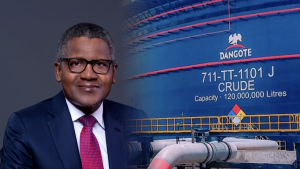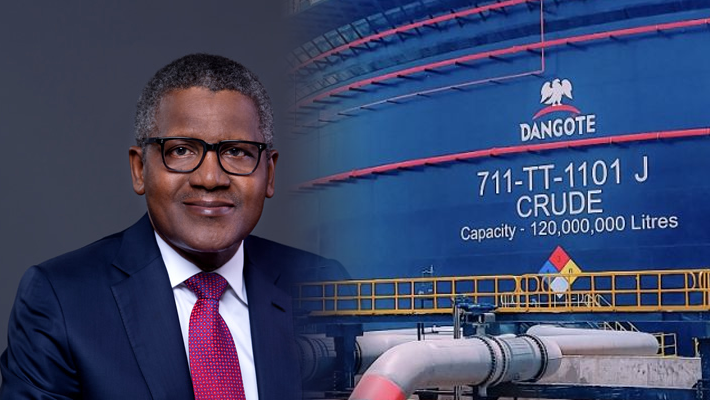The recent reduction in petrol prices by Dangote Petroleum Refinery has put fuel importers at risk of losing an estimated N466.62 million daily and N13.998 billion monthly, according to industry findings.
The refinery slashed its ex-depot price for Premium Motor Spirit (PMS) from N865 to N835 per litre last week—its third price adjustment in six weeks. This move has widened the gap between locally refined petrol and imported fuel, which now has an average landing cost of N868.33 per litre—N33.33 higher than Dangote’s rate.
Market Shift: Importers Face Heavy Losses
With Nigeria’s daily petrol consumption at 50 million litres, importers bringing in 14 million litres per day (down from 44.6 million litres in August 2024) now face steep losses. At the current import cost, their daily expenses amount to N12.17 billion, but selling at Dangote’s N835/litre rate would fetch only N11.69 billion—a N466.62 million deficit per day.
This marks an 81% drop from the N2.5 billion daily losses importers suffered in March, but the trend signals a major shift in Nigeria’s fuel supply chain, favoring local refiners.
Independent Petroleum Marketers Association of Nigeria (IPMAN) spokesman Chinedu Ukadike acknowledged the price drop as beneficial for consumers but lamented that dealers with old stock “will lose billions.”
Petroleum Products Retail Outlets Owners Association of Nigeria (PETROAN) President Billy Gillis-Harry criticized the “arbitrary” pricing, warning that unchecked fluctuations could destabilize the sector. “One company should not hold everyone to ransom,” he said, urging regulators to intervene.
The Crude Oil Refinery Owners Association of Nigeria (CORAN) warned that importers refusing to adapt “will soon go out of business.” Publicity Secretary Eche Idoko stressed that “refining in Nigeria has come to stay,” urging importers to realign their strategies.
Meanwhile, the NNPC Limited reduced its pump price to N935/litre, still N20 above competing rates from Dangote-linked retailers like MRS (N910/litre).
With Dangote Refinery’s growing influence and declining imports—now at 14.7 million litres daily—Nigeria’s fuel market is undergoing a seismic shift. Analysts say this could mark the beginning of the end for fuel importers unless they pivot to local refining partnerships.
What’s Next?
As Dangote’s pricing reshapes the industry, pressure mounts on regulators to ensure fair competition while importers scramble to stay relevant in a market increasingly dominated by domestic production.

